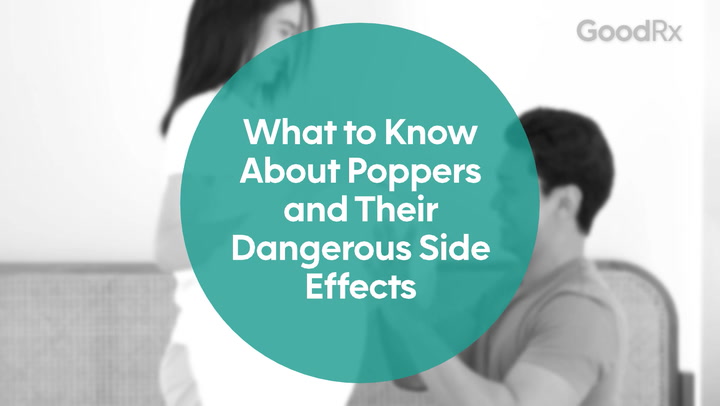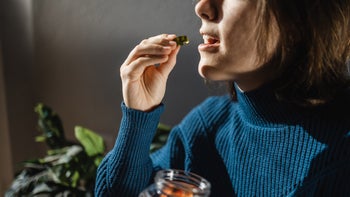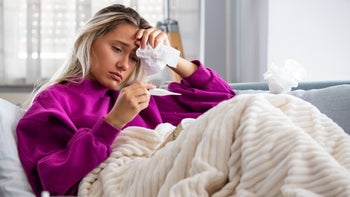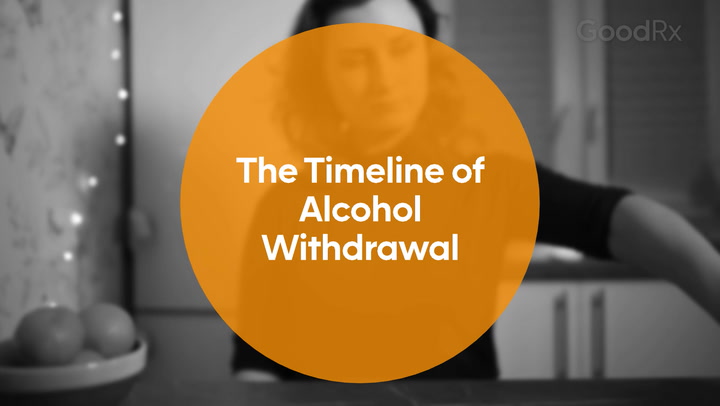
7 Side Effects of Mixing Alcohol With Caffeine
Key takeaways:
It’s best to avoid mixing alcohol and caffeine because they counteract each other in your body, which increases the risk of problematic effects.
Mixing alcohol and caffeine increases the likelihood of heavy drinking, alcohol dependence, and physical harm.
Drinking coffee or caffeine after drinking alcohol doesn’t affect how fast your body metabolizes alcohol. So caffeine will not sober you up.
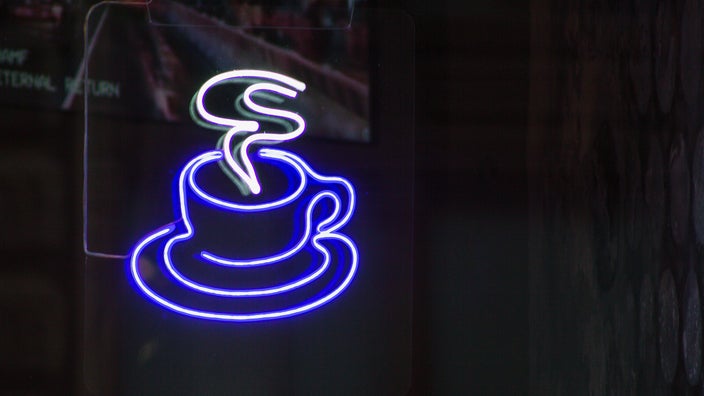
Many people mix caffeine and alcohol. Some combine energy drinks with beer or have bar cocktails like espresso martinis or energy drinks with vodka.
High-school kids and young adults mix alcohol and caffeine more than any other age group. In a recent survey, nearly half of young adults (ages 18 to 30) reported mixing alcohol with an energy drink in the past year. Combining these two substances can lead to risky and sometimes unpredictable effects.
Why do people mix alcohol and caffeine?
People mix alcohol with coffee and energy drinks for different reasons. Sometimes people mix them together into a cocktail. Other times people drink a caffeinated beverage after an alcoholic drink.
Search and compare options
Here are a few reasons people may mix alcohol and caffeine:
A sweet energy drink may improve or mask the taste of alcohol.
Some may feel like they can drink more alcohol by having both at the same time.
Some think that mixing the two helps to avoid a hangover.
Some think that drinking coffee after drinking alcohol helps to sober up.
But, in reality, combining caffeine and alcohol can actually lead you to drink more alcohol. And caffeine doesn’t help the body (liver) metabolize alcohol any faster — so it won’t sober you up.
What happens to your body when you mix caffeine with alcohol?
Caffeine is a stimulant, which increases activity in the brain. This means that it can make you feel more energetic and help you think more clearly.
Alcohol, on the other hand, is a depressant. This means that it slows down brain activity. And that can make it harder to think and talk clearly — plus lessening your coordination.
Since these two substances have very different effects, combining them can lead to problematic side effects. More research is needed to understand the exact ways this combination affects the body. But it’s clear that caffeine does not change how your body metabolizes (processes) alcohol or lessen your blood alcohol concentration.
Read more like this
Explore these related articles, suggested for readers like you.
The effects of mixing alcohol with caffeine
Some researchers describe the mix of alcohol and caffeine as a “perfect storm.” This is because the effects can be quite harmful. Here are seven possible consequences of combining alcohol and caffeine.
1. Caffeine can mask the effects of alcohol
The stimulating effect of caffeine can make it harder for you to perceive the effects of alcohol. Since caffeine can make you feel alert, you may feel less drunk than you actually are. And this can keep your body from warning you when you’ve had too much to drink.
2. Possible increased alcohol intake
Since caffeine can make you feel more alert, you may drink more alcohol than you mean to. There’s a popular belief that caffeine can help you sober up, but that’s not the case. So, if you continue to drink alcohol, your blood alcohol level will continue to rise even though you may not feel the effects.
3. You can experience alcohol poisoning
If you drink more because the caffeine makes you feel less drunk, you could be at higher risk of alcohol poisoning. This is also called an alcohol overdose. An overdose from alcohol means that your body has much more alcohol than it can handle. As a result, certain areas of your brain shut down.
Get medical attention right away if you notice signs of an alcohol overdose.
4. You can have an increased chance of misusing alcohol
The more often you drink alcoholic beverages with caffeine, the more likely you’re to misuse alcohol. One way to misuse alcohol is by binge drinking. Binge drinking means having about 4 or 5 drinks in a roughly 2-hour time period.
Experts agree that there’s no “safe” amount of alcohol to drink. In the U.S., the recommended limit for alcohol consumption is:
1 standard drink or less per day for women
2 standard drinks or less per day for men
5. You have a greater risk of alcohol dependence
If you regularly consume alcohol and caffeine together, you have a greater risk of developing a dependence on alcohol. The more frequently you binge drink, the greater your chances become of developing:
Alcohol use disorder: This is the continued use of alcohol despite it causing significant problems in your life. These problems may include health concerns, relationship difficulties, and an inability to fulfill your responsibilities.
Alcohol dependence: This is another possible consequence. It means that your body has gotten so used to the presence of alcohol that it needs it to function. In turn, if you abruptly stop drinking, your body goes through withdrawal.
This risk is even greater if you have a family history of alcohol addiction.
6. You are more likely to make mistakes
You probably know that you don’t perform tasks as well when you are under the influence of alcohol. And while caffeine alone can make you feel alert, caffeine doesn’t necessarily improve your performance when you consume it with alcohol.
7. You can experience more alcohol-related consequences
A study on students who combine alcohol and caffeine showed that they’re more likely to:
Experience medical emergencies, such as alcohol overdose
Get in a car with a drunk driver
Be physically hurt or sustain injuries
Take advantage of someone sexually
Be taken advantage of sexually
Will drinking coffee after alcohol help you sober up?
No, drinking coffee (or other forms of caffeine) after drinking alcohol doesn’t affect how quickly your body metabolizes alcohol. In other words, caffeine and coffee won’t help you sober up.
The only thing that sobers you up is time. Mixing caffeine with alcohol or having caffeine the morning after drinking will not lessen the alcohol concentration in your breath or blood.
In short, caffeine can make you more alert during a hangover, but it won’t make you sober.
What are the signs of an alcohol overdose?
Since consuming caffeine with alcohol can lead to a higher risk of alcohol overdose, it’s important to know the signs and act quickly.
Call 911 right away if someone shows signs of:
Seizures
Confusion
Vomiting
Difficulty staying awake or an inability to wake up
Slow or irregular breathing
Slow heart rate
Very low body temperature
Cold, blue, pale, or clammy skin
Can you minimize the risks of mixing alcohol and caffeine?
Given the risks associated with mixing alcohol and caffeine, it’s best to avoid doing so altogether. If you do choose to combine the two, try some of these safer practices:
Be mindful of how much caffeine you consume, since different caffeinated beverages have different amounts of caffeine. Energy drinks and shots may contain 200 mg of caffeine. This is much more than a standard cup of coffee, which contains 95 mg of caffeine.
Pay attention to how much alcohol you consume, and space out your drinks.
Planning ahead can help you avoid unsafe situations. Here are some ways to stay safe:
Drink only with people you trust and at places you trust.
Make plans for a sober ride home.
Decide ahead of time how many drinks you will have and when you will stop drinking
Avoid drinks that you or a bartender did not mix.
The bottom line
Mixing alcohol and caffeine is riskier than drinking alcohol alone. It carries a greater risk of heavy drinking, alcohol dependence, and physical harm. So it’s best to avoid combining the two substances. And it’s important to know the signs of alcohol overdose and use strategies to help reduce the risks.
Why trust our experts?



If you or someone you know struggles with substance use, help is available. Call SAMHSA’s National Helpline at 1-800-662-HELP (4357) to learn about resources in your area.
References
Attwood, A. S., et al. (2012). Effects of caffeine on alcohol-related changes in behavioural control and perceived intoxication in light caffeine consumers. Psychopharmacology.
Centers for Disease Control and Prevention. (2018). Alcohol & substance misuse.
Centers for Disease Control and Prevention. (2024). Alcohol and caffeine.
Harvard T. H. Chan School of Public Health. (2020). Caffeine.
Howard, D. E., et al. (2007). Staying safe while consuming alcohol. Journal of American College Health.
MacKillop, J., et al. (2012). Initial development of a measure of expectancies for combinations of alcohol and caffeine: The caffeine + alcohol combined effects questionnaire (CACEQ). Experimental and Clinical Psychopharmacology.
Marczinski, C. A., et al. (2006). Clubgoers and their trendy cocktails: Implications of mixing caffeine into alcohol on information processing and subjective reports of intoxication. Experimental and Clinical Psychopharmacology.
Marczinski, C. A., et al. (2014). Energy drinks mixed with alcohol: What are the risks? Nutrition Reviews.
McKetin, R., et al. (2015). A comprehensive review of the effects of mixing caffeinated energy drinks with alcohol. Drug and Alcohol Dependence.
MedlinePlus. (2021). Caffeine.
National Institute on Alcohol Abuse and Alcoholism. (n.d.). What Is a standard drink?
National Institute on Alcohol Abuse and Alcoholism. (2023). Understanding the dangers of alcohol overdose.
O’Brien, M. C., et al. (2008). Caffeinated cocktails: Energy drink consumption, high-risk drinking, and alcohol-related consequences among college students. Academic Emergency Medicine.
Poulos, N. S., et al. (2015). Socio-demographic differences in energy drink consumption and reasons for consumption among US college students. Health Education Journal.
Schulenberg, J. E., et al. (2022). Monitoring the Future national survey results on drug use, 1975–2017: Volume II, College students and adults ages 19–55. The University of Michigan Institute for Social Research.
Temple, J. L., et al. (2017). The safety of ingested caffeine: A comprehensive review. Frontiers in Psychiatry.
Treutlein, J., et al. (2009). Genome-wide association study of alcohol dependence. Archives of General Psychiatry.
Verster, J. C., et al. (2014). Motives for mixing alcohol with energy drinks and other nonalcoholic beverages, and consequences for overall alcohol consumption. International Journal of General Medicine.







